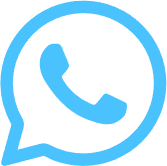The Future of Drone Tracking: Unleashing the Power of Technology
2025-08-08
Introduction: Enter the Drone Age
Hey there, tech enthusiasts! Have you ever thought about how far we've come in the world of technology? Drones are no longer just toys for hobbyists; they're becoming essential tools in various industries. But wait, what about keeping track of these flying marvels? That's where a drone tracker swoops in to save the day!
What Exactly is a Drone Tracker?
Alright, let's break it down. A drone tracker is a device or software designed to monitor the location and movements of drones in real time. Whether you're a hobbyist worried about losing your new gadget or a business owner ensuring that your fleet is operating efficiently, these trackers are your best mates!
Why Do You Need One?
Now, you might be asking yourself, "Do I really need a tracker for my drone?" The answer is a big, resounding YES! Here's why:
- Safety First: Drones can easily get lost or crash, especially in unfamiliar territory. A tracker helps you locate it quickly.
- Regulatory Compliance: Many countries have laws requiring drone operators to keep track of their devices.
- Insurance Benefits: Some insurance companies offer discounts for drones equipped with trackers.
How Does It Work?
Ah, the magic of technology! A drone tracker typically uses GPS or radio frequency technology to relay the drone's position to your smartphone or computer. It's like having a virtual leash for your drone! And with mobile apps, you can receive alerts, access flight logs, and even see your drone's flight path.
The Various Types of Drone Trackers
Not all trackers are created equal. Here's a quick rundown of the main types you might encounter:
- GPS Trackers: These are the most common and provide real-time tracking through satellites.
- Radio Frequency Trackers: They work within a specific range and can be useful in areas with poor GPS signals.
- Cellular Trackers: These rely on cellular networks to provide tracking, so they're great for urban areas.
- Wi-Fi Trackers: Some drones can connect to Wi-Fi networks to relay their position, but this is less common.
Real-World Applications
So, who's using drone trackers and for what? Well, the list is pretty impressive!
- Agriculture: Farmers are using drones to monitor crops, and trackers help them ensure they don't lose their devices in vast fields.
- Delivery Services: Companies are experimenting with drone delivery, and tracking ensures packages reach their destinations safely.
- Search and Rescue: In emergencies, drones equipped with trackers can help locate missing persons or assess damage in hard-to-reach areas.
The Future of Drone Tracking
As technology continues to evolve, so will drone trackers. With advancements in AI and machine learning, future trackers may even predict potential issues before they occur. Imagine a tracker that warns you about bad weather or unsafe flying conditions—how cool would that be?
Final Thoughts: Stay Ahead of the Game
In this fast-paced world, staying ahead of the curve is essential. Whether you're a professional or a hobbyist, investing in a drone tracker can save you time, money, and headaches. So, if you haven't already, consider adding one to your flying arsenal. Happy flying, and may your drones always find their way home!
Related News













